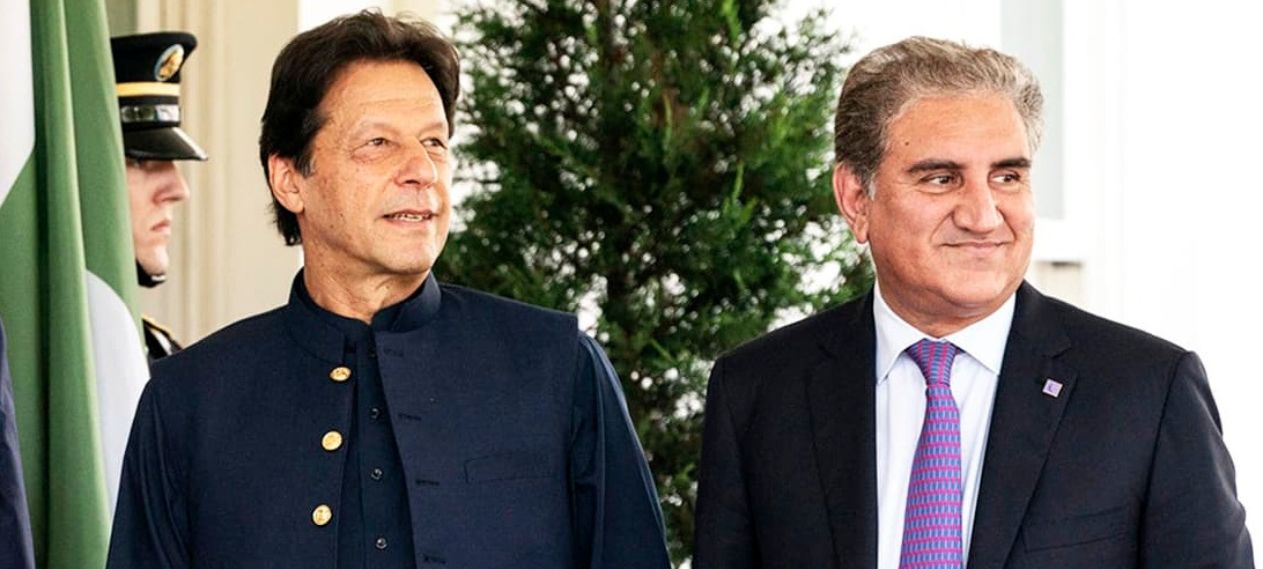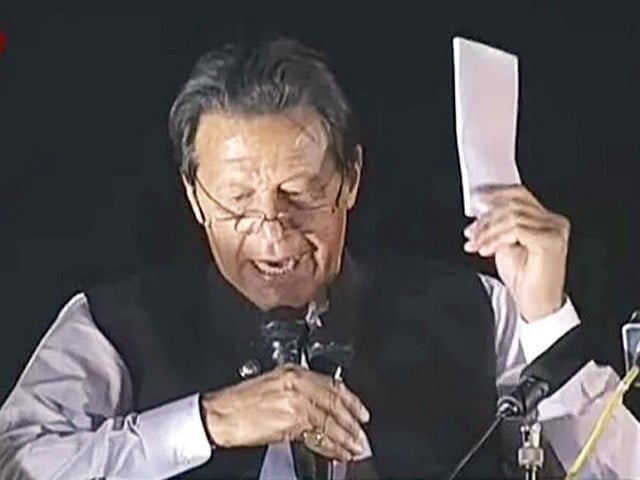A special court operating under the Official Secrets Act delivered a verdict, sentencing both former Prime Minister Imran Khan and ex-Foreign Minister Shah Mahmood Qureshi to 10 years in jail in connection with the cipher case.
The cipher case revolves around a diplomatic document, the return of which has been a subject of contention. The Federal Investigation Agency’s charge sheet asserts that the document, allegedly not returned by Imran Khan, contained sensitive information.
Notably, the PTI (Pakistan Tehreek-e-Insaf) has persistently maintained that the document contained a purported threat from the United States aimed at removing Imran Khan from his position as prime minister.
The verdict marks a significant development in Pakistan’s political landscape, stirring debates and discussions across the nation. Both Imran Khan and Shah Mahmood Qureshi have been prominent figures in Pakistani politics, and their sentencing in this case has far-reaching implications.
Also Read: Pakistan’s Former PM Imran Khan and Wife Charged in Toshakhana Case(Complete History)
Legal experts anticipate that this verdict could potentially impact diplomatic relations, particularly with the United States, depending on the contents and implications of the aforementioned diplomatic document.
Furthermore, it is expected to fuel discussions regarding the Official Secrets Act and its enforcement in cases involving high-ranking officials.
The sentencing has elicited varied responses from different quarters of Pakistani society, with supporters of Imran Khan expressing disbelief and dismay while critics of the former prime minister welcoming the court’s decision as a step towards accountability and transparency.
As the news reverberates across the nation, all eyes are now on the legal proceedings following the verdict, including any potential appeals or further actions by the defendants. The repercussions of this landmark decision are likely to unfold in the coming days, shaping the political landscape of Pakistan for the foreseeable future.
History of the Cipher Case
Beginnings of a ‘Foreign Conspiracy’
In March 2022, former Prime Minister Imran Khan raised allegations of an international conspiracy aimed at toppling his government during a Pakistan Tehreek-e-Insaf (PTI) rally. He claimed to possess evidence of foreign funding being used to orchestrate the government’s downfall.
This development coincided with a no-confidence motion against Imran, which eventually succeeded, leading to his removal from office.
The alleged conspiracy revolved around a diplomatic document discussed during a farewell lunch for then-Pakistani ambassador Asad Majeed Khan in March 2022.
US officials present at the lunch, including Donald Lu and Lesslie C Viguerie, were accused of issuing threats against Imran’s government. Imran later referenced this document, implying a US involvement in the no-confidence motion against him.
Also Read: Imran Khan Face Masks Sparks Massive Online Craze, Went Out of Stock Within Hours
Beginning of Court Proceedings
In August 2023, the Federal Investigation Agency (FIA) registered a case under the Official Secrets Act against Imran Khan and former Foreign Minister Shah Mahmood Qureshi.
The case centered around the alleged unauthorized communication of classified information contained in a diplomatic cipher. Both Imran and Qureshi were indicted in October, but legal complications arose, leading to the Islamabad High Court declaring the initial proceedings illegal.
The case resumed in December 2023 after the Special Court (Official Secrets Act) reinitiated the trial. However, legal battles continued, with the Islamabad High Court issuing a stay order on the proceedings, citing legal errors.
Witnesses, Counsels, and Conviction
In January 2024, the special court summoned witnesses to testify in the case.
Statements from multiple witnesses, including former principal secretary Azam Khan and ex-foreign secretary Sohail Mehmood, highlighted discrepancies regarding the handling of the diplomatic cipher.
The court faced challenges, including the absence of defense counsel during cross-examination and allegations of delaying tactics. Despite these hurdles, the proceedings continued, leading to the cross-examination of all 25 prosecution witnesses.


